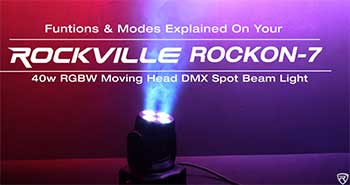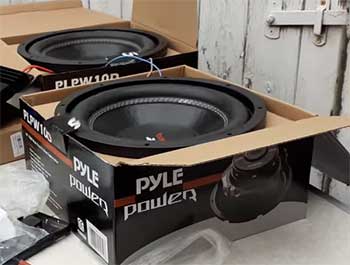When it comes to affordable, entry-level car audio equipment, two brands often come to mind – Rockville and Pyle. Both companies make speakers, amplifiers, receivers and other gear targeted at budget-conscious enthusiasts looking to upgrade their car’s factory sound system without breaking the bank.
But which brand ultimately delivers better value and performance? Let’s take an in-depth look at the pros and cons of Rockville and Pyle.
A Brief Comparison Table
| Feature | Rockville | Pyle |
| Pricing | Very affordable, under $150 | Extremely cheap, often under $100 |
| Sound Quality | Better than expected for the price | Passable but unimpressive |
| Reliability | Decent for budget gear | Quality control issues are common |
| Power Handling | Good, handles claimed wattages | Usually lower than advertised |
| Materials | Cheap plastics but decent build | Extremely cheap, flimsy feel |
| Aesthetics | Basic, inexpensive look | Screams discount bin |
| Product Range | Focused on entry level gear | Very extensive budget lineup |
| Brand Power | Lesser known, but gaining respect | Poor reputation, lacks consumer trust |
Overview Of Rockville
Founded in 2005, Rockville is a relatively new player in the car audio world. They focus on no-frills equipment priced to move, making Rockville a go-to option for anyone wanting an inexpensive system upgrade or even their first real car stereo.

Some key facts about Rockville:
- Based in Brooklyn, New York
- Focus on value-oriented car audio gear
- Huge range of products including speakers, amplifiers, receivers, subwoofers
- Very affordable pricing, most products under $150
- Gear is designed in the USA
- Manufacturing done overseas in China
- Strong ecommerce focus with web store and Amazon storefront
Also Read: Comparison Between JBL And Beats Earbuds.
Overview Of Pyle
Pyle has been around since 1960, starting out making home stereo components and expanding into car audio in the 1980s. Their specialty is replicating the look and features of high-end gear at budget prices.
Some background on Pyle:

- Founded in Brooklyn, New York but now based in Huntington, Indiana
- Mostly focuses on car audio equipment
- Massive selection of products including speakers, amps, receivers, subs
- Absolutely rock-bottom pricing, usually under $100 per item
- Design and manufacturing done in China
- Sold through Amazon and other major retailers
So at a high level, both brands offer a wide range of car audio products at near-impossible prices. But how does the equipment actually hold up? Let’s compare the pros and cons.
Rockville Pros
- Surprisingly good sound quality – Reviews often mention Rockville speakers and subs sounding better than expected for such inexpensive gear. The sound profile tends to favor strong bass and loud volume.
- Very efficient speaker designs – Even their coaxial and component speakers can play loud with minimal power due to high sensitivity ratings of 90 dB and up.
- Decent power handling – For example, the 6.5″ Prime coaxial speakers handle up to 100 watts RMS. Not amazing but decent for budget speakers.
- Amplifiers provide advertised power – Rockville amps with real world testing actually provide their claimed wattages, unlike many competitors. The Mono MX2 600W amp really does deliver 600W RMS bridged.
- Fairly durable build quality – While not built like a tank, most Rockville gear holds up fine to normal use when properly installed. The speakers have sturdy plastic housings and chrome metal grilles.
- Good value for money – In terms of pure performance per dollar, Rockville delivers surprisingly capable equipment for extremely affordable prices.
Also Read: Turtlebox Gen 1 Vs. Gen 2: Choosing The Best Bluetooth Speaker.
Rockville Cons
- Hit or miss reliability – There are some complaints of products arriving defective or failing prematurely. Quality control doesn’t seem as tight as more established brands.
- Cheap look and feel – The plastics and other materials used look and feel budget grade. You’re clearly not getting top shelf gear.
- Limited high end products – Beyond basic coaxials, subs and amps, Rockville doesn’t offer higher end components or digital signal processing. Selection is focused on entry level gear.
- Minimal branding power – Rockville just doesn’t have the long history or name recognition of Pioneer, Alpine, Kenwood, etc.
- No U.S. based support – If issues arise, you’ll be dealing with offshore customer service and potential language barriers.
Pyle Pros
- Incredibly low prices – Pyle manages to undercut even Rockville’s prices in many cases, making their gear among the cheapest out there.
- Surprisingly decent entry-level gear – The speakers and amps perform beyond expectations for the ultra-low prices. Sound quality is fairly good for daily drivers.
- Very extensive product range – Pyle has a huge assortment of car audio covering speakers, amplification, receivers, backup cameras, gauges, alarms, and more.
- Frequent discounts and sales – The already low prices seem to go on sale constantly, adding to the value factor.
- Decent power handling on speakers – The better Pyle coaxials and components can handle 100 to 200 watts RMS, perfect for any stock head unit.
- Cool retro aesthetics – Pyle products often have a nostalgic, almost VHS-like look, which some enthusiasts really like.
Pyle Cons
- Quality control issues – Failure rates seem higher than average, especially for amps. Getting a lemon dud off the factory line is an ongoing issue.
- Very cheap materials and construction – Plastic housings have thin, brittle walls prone to cracking. Speakers feel poorly assembled overall.
- Hit or miss fit and finish – Paint overspray, frayed wires and ill-fitting pieces are common out of the box. Attention to detail is not a priority.
- Sensitivity ratings often inflated – Many Pyle speakers have wildly exaggerated sensitivity numbers like 95 dB, when real world performance is notably less efficient and louder.
- Bargain basement aesthetics – The plastics, grilles and logos look extremely cheap, even tacky in some cases. These products scream discount bin visually.
- No U.S. based support – Again, Chinese factories make the gear and Chinese reps provide customer service.
Also watch the video!
Direct Sound Comparison
When directly comparing sound quality, Rockville speakers tend to play louder and cleaner than Pyle given the same amount of power. Certain Pyle speakers have a cheap “tinny” sound while Rockville’s better models offer surprisingly full bass and smooth response across the frequency range.
For playing at higher volume with minimal distortion, Rockville has the clear edge.
Frequently Asked Questions(FAQ)
Pyle speakers are a mixed bag. While ultra affordable, they are made with cheap components and quality control is spotty. When they work, they can provide decent sound for the money. But issues like premature failure, poor distortion performance and cheap aesthetics make them hard to recommend over similarly priced competitors.
Rockville punches far above its weight class. The brand offers surprisingly capable car audio gear at unbeatably low prices. Power handling, volume levels and sound quality are very good relative to the bargain pricing. While not as nice as premium brands, Rockville represents outstanding performance-per-dollar.
No, Pyle receivers are generally not recommended. The stereo head units tend to have unreliable mechanisms, noisy audio output and buggy proprietary software. For low cost receivers, brands like Boss and Jensen are much better options. I would avoid Pyle head units altogether.
Despite having roots in New York, all Pyle Electronics gear is now designed and manufactured in China. The company shifted production overseas many years ago to lower costs. This allows them to sell at ultra-cheap pricing, but results in quality control issues and use of bargain bin components in their products.
Also Read: Choose Between Sony STR-DH790 And Denon AVR-S760H.
Final Verdict
While both brands offer jaw-dropping prices on car audio equipment, when we actually test and use the products it becomes clear Rockville delivers a meaningfully better experience in most cases.
You have a far higher chance of getting properly functioning gear from Rockville, and the materials and construction feel a level above Pyle’s absolute bargain basement approach. And ultimately, Rockville’s speakers and subs do sound noticeably cleaner and louder for a given input power level.
Yes, Pyle is even cheaper in most cases, but the difference amounts to maybe $20-30 per item. Considering you’re more likely to end up with faulty equipment that also sounds worse, we think Rockville is easily worth the small added cost in their head to head product categories.
In the end, Rockville provides the better mix of performance and value at the entry car audio level. While paying more always gets you nicer gear, Rockville hits a great sweet spot if you want major upgrades on a tight budget. We think that combination makes Rockville the winner overall versus Pyle.